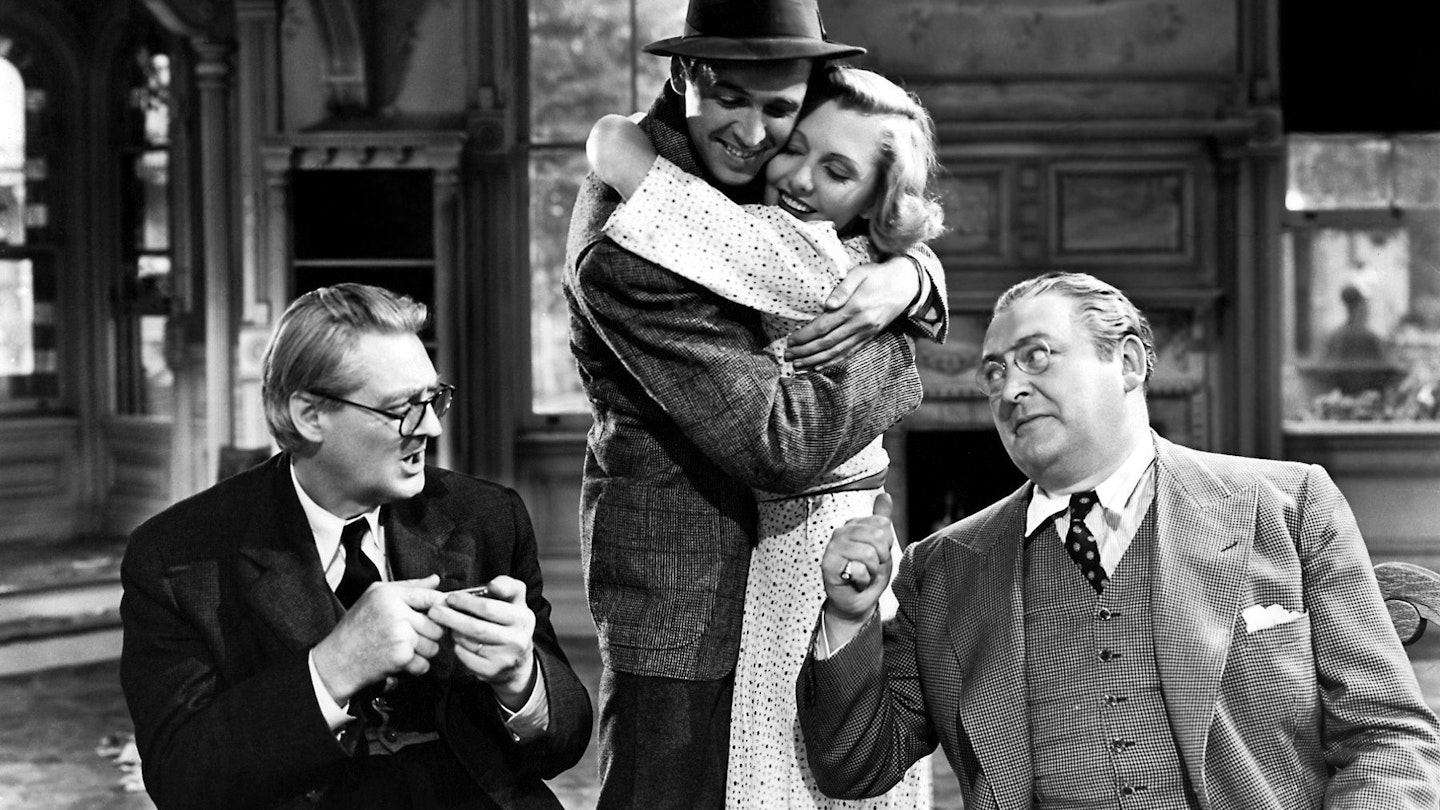Frank Capra saw George S. Kaufman and Moss Hart's Pulitzer Prize-winning play while in New York to promote Lost Horizon. However, Columbia supremo Harry Cohn was less than impressed by Broadway producer Sam Harris's asking price and famously declared, `I wouldn't shell out 200 Gs for the Second Coming!'. But Capra was on such a roll that Cohn paid up and was rewarded with Capra's third Oscar for Best Director and his second for Best Picture.
In its day, this was regarded as a joyous farce about a family whose wealth lay in love, health and the good opinion of its neighbours. Yet, this is a problematic film, from both a dramatic and political perspective.
Although he added mask and toymaker Mr Poppins (Donald Meek) to reinforce the air of whimisicality, Capra made few changes to the original text, as it chimed in so precisely with his perennial theme that money couldn't buy happiness. Yet, while he shifted the emphasis on to Kirby's munitions ambitions (some later claimed as a way of warning about the coming war), Capra adopted a highly naive approach to capitalism throughout this supposedly satirical romp.
Even though he had retired 30 years earlier, Grandpa Vanderhof still lives comfortably in a mansion and, apart from Alice's income from Kirby's coffers, he seems to have no visible means of financial support. So, despite his incessant tirades against the various `isms' blighting society, one must conclude that he has a self-replenishing source of revenue, which tends to imply investments. Thus, he seems to have a stake in the very world of big business he has urged his shiftless family to reject - yet, when he finds himself in court, he appears reliant on the coppers that the townsfolk can muster.
Such clumsy plotting is compounded by the laziness of the charaterisation, which reduces the Vanderhofs to buffoonish acolytes to Alice's Snow White. Her fond embarrassment about her relations and her willingness to marry into money are also conveniently glossed over.
This is often great fun, but it's also archly anarchic and inexpertly populist and prompts one to reconsider the Capra-corn canon with a new cynicism.
